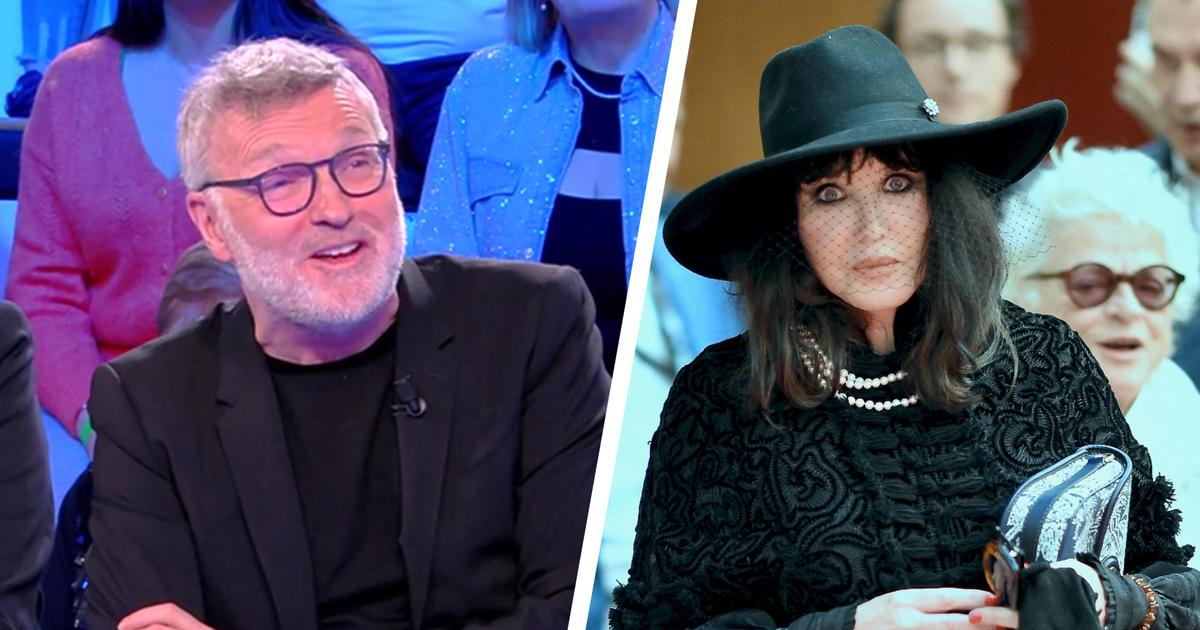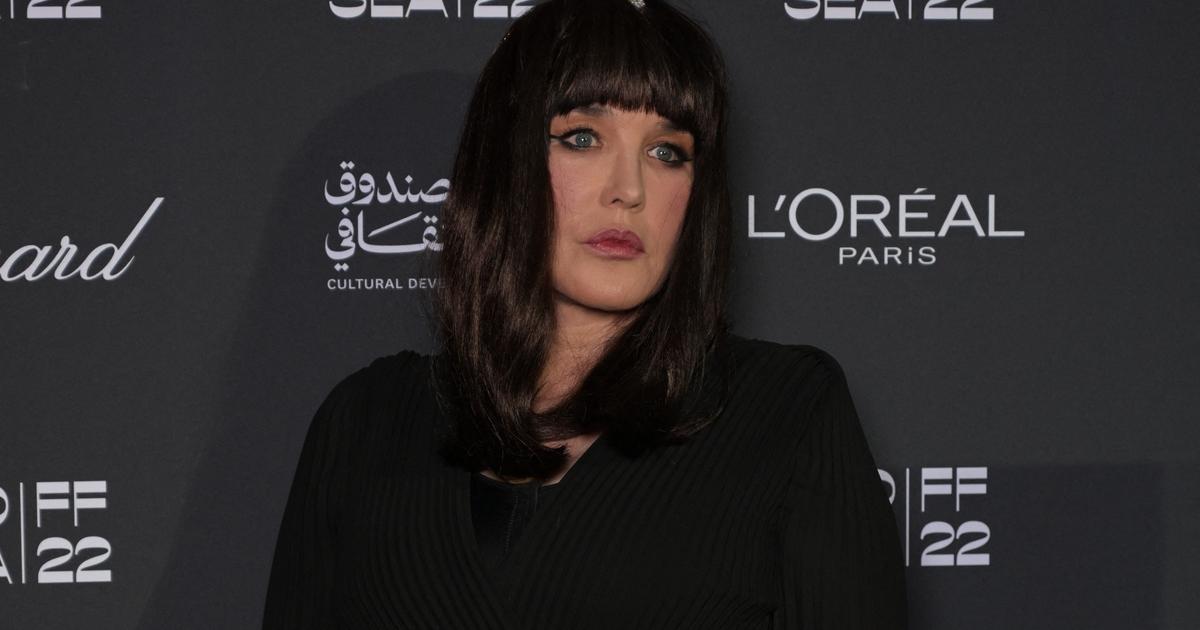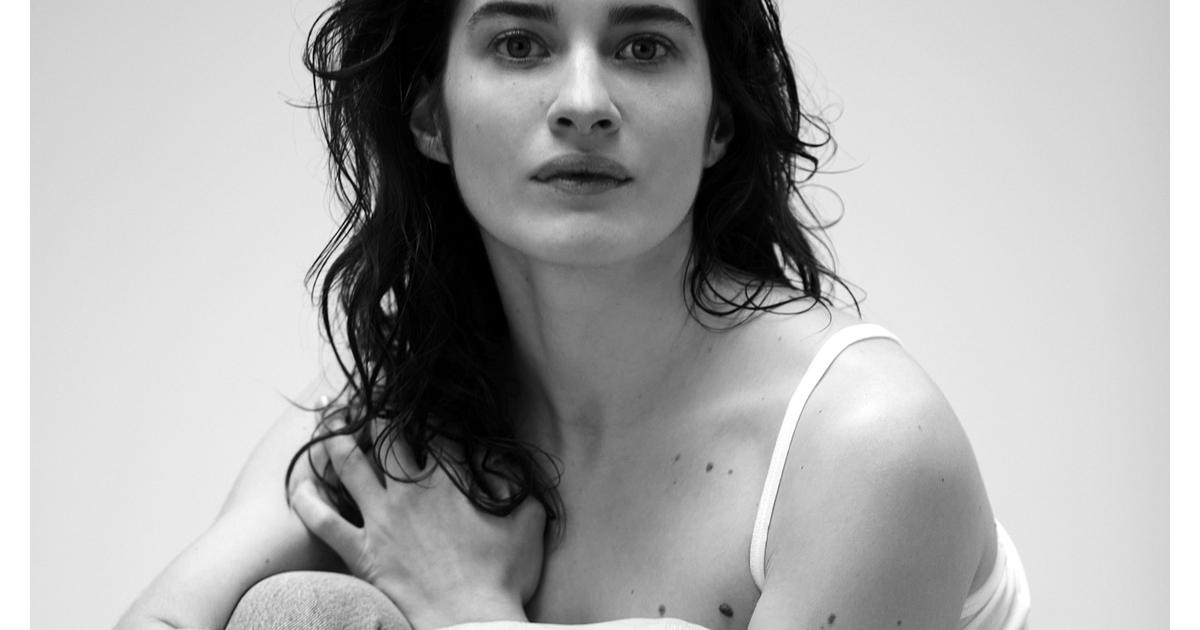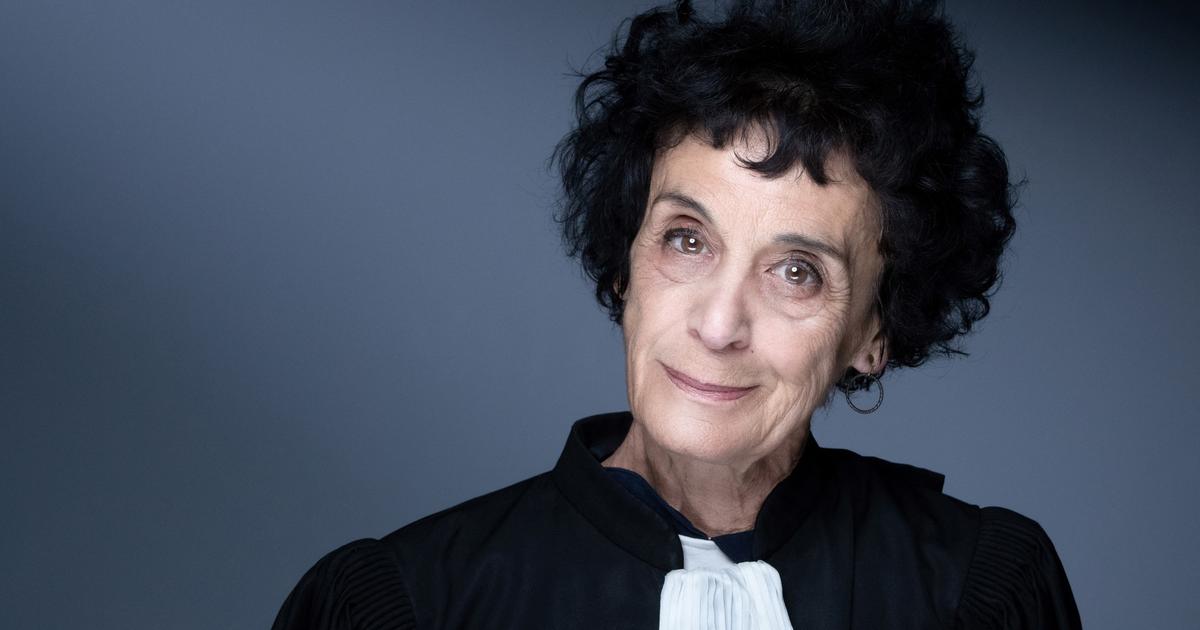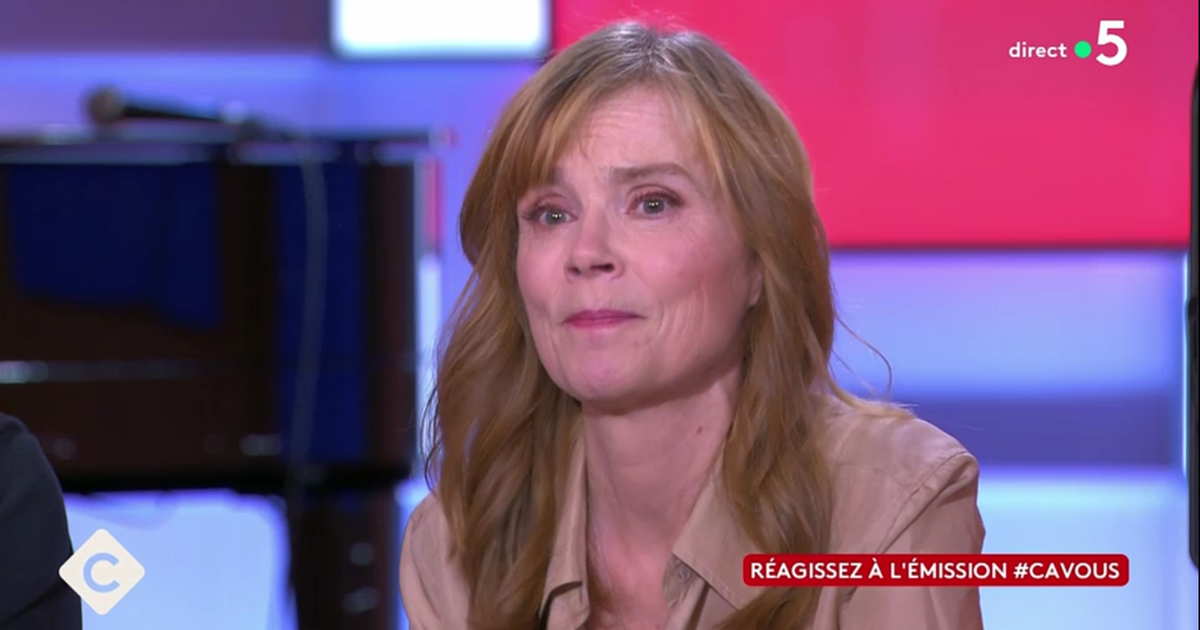There is a dialogue in
Peter Von Kant
, the latest film by French director François Ozon that has just been released in France, in which someone says that people with fame and success tend to be of advanced age, and then the character of Isabelle Adjani (Paris , 67 years old), a decadent diva, added: "I am the exception that confirms the rule."
It is a wink of metafiction between the actress and her character, but the matter is not exhausted in a mere joke.
In this
remake
of Reiner Werner Fassbinder 's drama
The Bitter Tears of Petra Von Kant
, Adjani executes what could be understood as a self-parody.
Which suggests that, contradicting the public image of her, she does not lack a sense of humor.
This premiere coincides with the arrival on the Filmin platform of the restored 4K version of
The Possession
(1981), by Andrej Zulawski, in which, more than 40 years ago, the same performer offered the opposite face of her talent.
“It is a film that takes risks and gets it right, that confuses, seduces and bothers, and has marked the path to follow for many creators who are present in our catalog today”, reasons Jaume Ripoll, co-founder and editorial director of Filmin.
“Without her there would be no
Under my skin
(2013), to give an example”.
For Adjani, that was an extreme and reckless job that brought her numerous awards, but in exchange for that other gift, she had to undergo a traumatic experience during filming that helped shape her personality on and off screen.
Isabelle Adjani is an endangered species, one of the last representatives of her lineage.
Character of herself, she embodies a type of actress, inaccessible and larger than life, that North American cinema was progressively abandoning from the sixties of the last century, and that today only survives in France, where in any case it does not seem find relief in the following generations.
Not even other stars from her country like Juliette Binoche or Marion Cotillard radiate that presence in which mystery is everything and anything that smells natural or ordinary is ruled out.
The cultural journalist Alex Vicente, editor of
Babelia
and former cultural correspondent for EL PAÍS in Paris, summarizes his career as follows: “Of the three great actresses who stood out in French cinema after the
nouvelle vague
, Isabelle Huppert, Juliette Binoche and Isabelle Adjani , it is the latter who has had a more unpredictable and tortuous career.
She had it all: she was the youngest Oscar nominee for Best Leading Actress up to then, she won five César Awards and she had national heroine status in France, which would reach its zenith with
Queen Margot
(1994).
But she later squandered that fortune in record time and ended up becoming a caricature of herself, to the point of embodying the misogynistic stereotype of the deranged diva”.
Isabelle Adjani and Sam Neil at the premiere of 'The Possession' in 1981. Jean-Louis URLI (Gamma-Rapho via Getty Images)
Roman Polanski and Isabelle Adjani during the filming of 'The Chimeric Tenant' in 1976 in Paris.
Sveeva VIGEVENO (Gamma-Rapho via Getty Images)
By 1981, when she starred in
Possession
, she was already a well-respected and popular young actress.
Her role earned her the performance award at the Cannes festival (also obtained that same year for her work in
Quartet
, by James Ivory), and his first César, among many other awards, but it also meant the discovery of a path that he did not want to continue traveling.
In this allegory of the brutality that every breakup of a couple implies, told in a science-fiction key, Adjani executed things that she herself would later describe as “unrealizable”.
These included having sex with a monster in the form of a giant squid or having a fit that began with hysterical laughter, continued with screams and convulsions and ended with her sprawled on the floor, oozing blood and a whitish fluid from her orifices.
But, above all, during filming he had to submit to the questionable methods of the director, known for putting his performers on the edge of the abyss.
“I would never do it again.
You have to be extremely young or anti-feminist to believe that one gets something out of being manipulated and martyred, ”he declared in an interview with
Inrocks
magazine in 2018 without specifying more.
On her part, exhibiting a frivolity that today is as difficult to contemplate as those scenes, Zulawski himself would assure in another interview that Adjani had tried to commit suicide by cutting her wrists with a razor blade after seeing herself at the premiere.
The director attributed her desperation to the fact that the film too violently contradicted the image that she was beginning to forge of herself, that of a perfect and untouchable creature, which over time would have led her to become, through cosmetic surgery, a new version of the portrait of Dorian Gray.
"She wants to look younger than her children," she concluded.
In addition to illustrating the demand for eternal youth that continues to be applied to actresses, all this speaks of the control to which Adjani would submit the different aspects of his life from then on, from the exposure of his physique (the director of photography Philippe Rousselot recalled in the French edition of
Vanity Fair
tug-of-war over this issue during the filming of
Queen Margot
) to their career choices.
There are two traits that have characterized Isabelle Adjani's career, at least until the last decade.
One is her demands on her roles: hot-tempered women, often tragic heroines immersed in mental health crises, who she has played with a non-negotiable sense of commitment.
She set the tone with her first great success,
Diary of Adèle H
(1975), by François Truffaut, where she embodied the real character of Victor Hugo's daughter, driven to madness by the rejection of the man she loved. loved.
Thanks to that film, she was, at only 19 years old, nominated for a César for the first time (which went to Romy Schneider in
The important thing is to love
, curiously directed by Zulawski) and also for an Oscar.
Isabelle Adjani and Sharon Stone at the Los Angeles premiere of 'Diabólicas' in 1996. Vince Bucci (AFP via Getty Images)
It is often said that the shooting was somewhat stormy because Truffaut became obsessed with her, as had happened to him other times with his actresses (Jeanne Moreau, Françoise Dorléac, Claude Jade, Catherine Deneuve or Fanny Ardant), only in this case he intervened in the equation an age difference of 23 years.
"I must be the only actress she's filmed with that she said no to," she said in an interview published in
Paris-Match
in 2013. "But when you're not ready, you're not ready."
Other of her best roles in this line would be Herzog's
Nosferatu
(1979),
Becker's
Murderous Summer
(1983), Miller's
Mortelle randonnée (1983), Nuytten's
Camille Claudel
(1988) and
Queen Margot .
Chéreau, perhaps the pinnacle of his filmography.
The second factor that conditions his career is the tendency to take more or less long periods of inactivity, generating with each of his returns to the screen a certain climate of expectation.
It is a pattern that has been attributed to a supposedly difficult character, but it can also respond to a strategy based on the tension between presence and absence, what is seen and what is hidden, typical in the careers of some of the greats of Hollywood. classic in the style of Greta Garbo and Ingrid Bergman.
As a new Garbo or Bergman, she was initially launched in the United States, where she made her debut in 1978 with
Driver
, opposite Ryan O'Neal.
Despite the respect of her American colleagues – she has been nominated for an Oscar twice, for
Adèle H
and
Camille Claudel
– she gives the impression that contemporary Hollywood does not fit her personality, and her few forays there have resulted in commercial failures and artistic, case of
Ishtar
(1987) and
Diabólicas
(1996).
In the first of them he embarked with who was then his partner, Warren Beatty.
Several of his sentimental companions have belonged to the entertainment sector, such as the French actors André Dussolier and Francis Huster (with whom he began at the Comédie-Française), the cinematographer and producer Bruno Nuytten (with whom in 1979 he had to his first son, Barnabé Saïd-Nuytten), the British interpreter Daniel Day-Lewis (father of his second child, Gabriel-Kane, who was born in 1995, shortly after their separation), or the composer Jean-Michel Jarre.
She made this latest breakup public on a cover of
Paris-Match
magazine , explaining that Jarre had cheated on her with fellow actress Anne Parillaud: "I believed him and he betrayed me," read her headline.
Isabelle Adjani at the 1990 Oscars. Ron Galella, Ltd. (Ron Galella Collection via Getty)
With the press he has maintained an ambivalent relationship that has also contributed to his legend.
This has included disagreements such as the one that occurred at the 1983 Cannes festival, where photographers turned their backs on her and put their cameras on the ground in protest after she canceled the usual media posing to grant an exclusive .
Of a very different sign was her appearance on a television newscast in 1987, at which she was forced to deny the rumor that she had contracted AIDS.
Many times it has been insinuated that her behavior on the set has been problematic, which in the case of
The Brontë Sisters
(1979), by André Téchiné, would have meant a lifelong rivalry with the other great of his generation, Isabelle Huppert.
Adjani declared in 2014, during an interview with the Libération
newspaper
, that if Huppert monopolized the best roles in French cinema in the eighties, it was thanks to her romantic relationship with the producer Daniel Toscan du Plantier.
Two years later, however, she settled the matter in another interview with
L'Express
, assuring that the alleged pique was an invention of the media that was only based on the fact that the two shared a first name.
Isabelle Adjani in Cannes during the presentation of 'Queen Margot,' one of her biggest successes in France, in 1994. Pool BENAINOUS/DUCLOS (Gamma-Rapho via Getty Images)
In recent years, however, it has offered a somewhat less haughty image.
He has ironically treated his public image in films such as Rappeneau's
Bon Voyage
(2003), Nicolas Bedos's
Mascarade
(2022) or
Peter Von Kant
's own .
But he has also spoken about his childhood and family origins, topics that in other times he used to tiptoe over.
She is the daughter of immigrants, she grew up in the
banlieue
(the suburbs) Parisian.
Her father, Mohammed-Chérif Adjani, was an Algerian-born car mechanic ("handsome like Marlon Brando," in Isabelle's words), and her mother was German, Augusta Schweinberger.
As she herself has told in several interviews, her family relationship was always conflictive, marked by the authoritarian character of her father and the coldness of her mother.
In 1983 she accompanied Mohammed in the hospital during his last days, for which she abruptly abandoned the filming of the film
Prénom: Carmen
de Godard (1983), where she was replaced by another actress.
His brother, photographer Eric Adjani, died in 2010 due to a heart attack after a long history of alcohol and drug abuse.
"He was trapped," she declared in
L'Illustré
four years ago.
“I was his nurse very early on, even though we were only two years apart.
It's a terrible failure not being able to help someone you love out of this."
It is no coincidence that these days Isabelle Adjani is in a Parisian theater playing Marilyn Monroe, with whom she shares difficult origins and a tortuous relationship with her own image: "She was another fallen angel who was corrupted by the
star system
," says Vicente.
“Adjani is still a star, although at times it seems that she is still waiting for her last big role.
I am fascinated by her latest metamorphosis into a
camp
actress of hers, who assumes the status of a fallen star of hers, in François Ozon's film”.
As with her entire filmography, criss-crossed with ups and downs, watching this film is an opportunity to witness a unique and unrepeatable phenomenon.
There are no more divas like Isabelle Adjani.
You can follow ICON on
,
,
, or subscribe to the
Newsletter here
.


